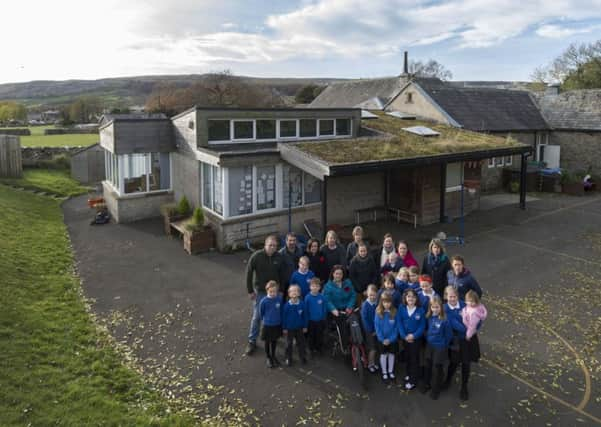Jonathan Gibbs: We must save rural life '“ but this school had to die


First, the closure of Horton-in-Ribblesdale Church of England Primary School is a tragedy and a real blow to the local community. No question. And that closure is a matter of huge regret to me and all my colleagues on our Diocesan Board of Education. Full stop.
Second, I wish that it could have been otherwise. I grew up in rural Cheshire and I was Chair of Governors at a Church of England village primary school for 16 years. At their best, such schools offer a unique and very special contribution to their pupils and to the communities they serve. Closing a village school can feel like tearing the heart out of a rural community, because children represent its future.
Advertisement
Hide AdAdvertisement
Hide AdBut, in the end, I also believe that North Yorkshire County Council took the right decision. Given the numbers of children involved and the resources available to support the school, the evidence indicates that it was not in the best interests of the children’s education to keep the school open.
There, I’ve said it, and I know it won’t go down well with some people.
So now that we have got all that out in the open, what are we going to do about our small rural schools?
Well, let’s be clear what we are talking about when we refer to small schools. For the Department for Education (them down in London) a small school is one with 210 pupils or less. That’s a single form entry primary school with 30 children coming into Reception every September.
Advertisement
Hide AdAdvertisement
Hide AdBut many of the schools we are talking about in the Dales and elsewhere have fewer than 50 children – and sometimes fewer than 20. At the time the council took the final decision to close the school, Horton-in-Ribblesdale had just 12 children on the roll.
Now that may sound idyllic, just the kind of school that Gervase Phinn could wax lyrical about, but research indicates that children in a year group cohort of less than six pupils simply do not do as well as those in larger groups. That in the end is why it was deemed to be in the best interests of the children’s education to close the school and make provision for them elsewhere.
But this isn’t just about the children, is it? It is also about the communities in which they live and the future of those communities. That is why so many people have been getting so agitated about the proposal to close the school – because that closure is a threat to the identity and future of the local community.
Let’s be clear, this whole business is about the future of our rural communities and the way of life they represent.
Advertisement
Hide AdAdvertisement
Hide AdAnd that is what we need to focus on. We need to recognise that rural communities – up the Dales in particular – bring something unique to our national life, and especially to the life of this county of Yorkshire. And then we need to make a choice: Do we want those communities to have a future or are we prepared to let them wither and die?
If those up-the-Dale villages and their outlying farms are going to survive, then we need to work out what they need in order to do so and we need to make sure they get it.
That means having schools that are local enough for children to get to and large enough that they can offer a first-class education – which in turn will require new ways of working together in creative partnerships to make these schools both viable and attractive. Otherwise parents will send their children to larger schools in towns down the valley, as they often do already.
But it also means a whole lot of other things, like fast broadband to help people live and work in rural areas. It means decent primary health care and support for the elderly. It means churches being opened up to provide community space for people to meet, and maybe also hosting post offices and shops and libraries. It means tough conversations about planning issues and affordable housing.
Advertisement
Hide AdAdvertisement
Hide AdIt means joined up thinking involving local councils and voluntary organisations and a whole host of others. It means us leaning on MPs who lean on the Department for Education to get them to see the vital importance of small rural schools and the need for appropriate funding for them. It means knocking Education Ministers heads together with those of their colleagues in the Department of the Environment, Food and Rural Affairs (DEFRA) and the Department for Communities and Local Government (DCLG). Not forgetting of course the need to get the NHS working together with local authority social care as well.
Over the last few weeks, we have received hundreds of letters about the proposed closure of Horton-in-Ribblesdale Primary School. That represents a huge amount of energy that could and should be translated into looking for new ways of helping our rural communities to thrive. That, above all, is what I want to see. How about you?
The Rt Rev Dr Jonathan Gibbs is Bishop of Huddersfield and Chair of the Diocese of Leeds Board of Education, which supports around 250 church schools in North and West Yorkshire.